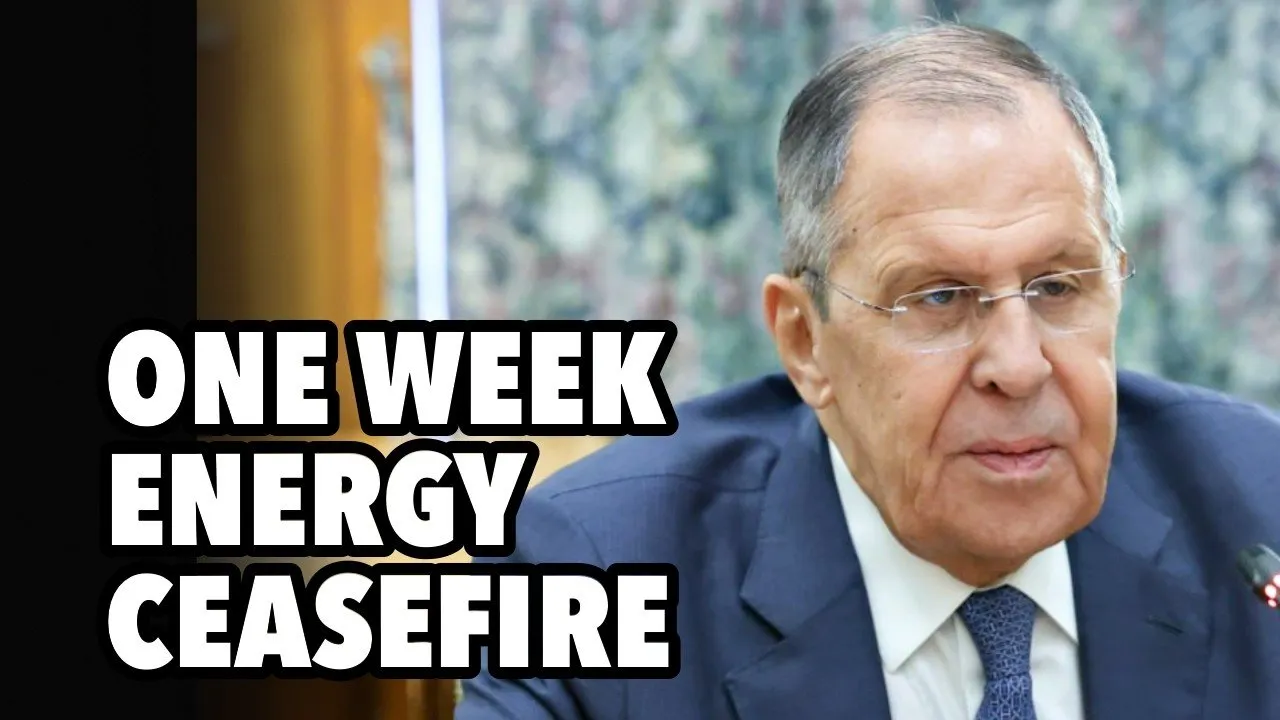Table of Contents
Javier Milei's presidency represents Argentina's first genuine break from decades of oscillating between fascist and Marxist variants of Peronism through radical economic liberalization.
Key Takeaways
- Argentina's economy requires constant rule-breaking to function, with nearly half operating in shadow markets due to excessive bureaucracy
- Peronism morphed from Mussolini-inspired fascism into Marxist populism, creating chameleon-like movement adaptable to any ideology while maintaining power
- The 1930s-1940s period established Argentina's pattern of state-controlled industrial protectionism that destroyed its agricultural export prosperity
- Milei eliminated half of government ministries and fired 60,000 federal employees within one year using emergency powers and viral marketing
- Young Argentines aged 16-30 drove Milei's victory by rejecting 50 years of political violence narratives from the 1970s dictatorship era
- Weak institutions force Argentine politics toward charismatic populist leaders rather than programmatic parties or institutional governance
- Social unrest decreased dramatically under Milei because government funding for protest organizations was eliminated, revealing artificial nature of demonstrations
Timeline Overview
- 00:00–15:00 — Expat Perspective: Bowtied Mara's journey from Dutch literary studies to 20-year Argentina residency, experiencing bureaucratic challenges firsthand
- 15:00–30:00 — Historical Context: Argentina's transformation from British-dependent agricultural exporter to Peronist industrial protectionism during 1930s-1940s crisis
- 30:00–45:00 — Peronist Legacy: Juan Perón's fascist-inspired "third way" politics, creating movement that adapted from right-wing authoritarianism to Marxist populism
- 45:00–60:00 — Political Violence: 1970s internal warfare between Marxist Montoneros and right-wing factions, military dictatorship, and ongoing historical debates
- 60:00–75:00 — Milei's Rise: Libertarian economist's media-driven political emergence from 2014 TV appearances to 2023 presidential victory
- 75:00–90:00 — Revolutionary Tactics: "Afuera" ministry elimination, protest suppression, and institutional reforms targeting patronage networks
Dutch Expat Witnesses Argentina's Bureaucratic Labyrinth Through Business Experience
Bowtied Mara's transition from Dutch literary studies to Argentine entrepreneur provides unique outsider perspective on the country's dysfunctional economic system. After studying Spanish language and culture, he moved to Buenos Aires through marriage to a Brazilian academic, establishing an online marketing company that revealed Argentina's bureaucratic complexity. The requirement that "everything has to go through a centralized kind of IRS system" rather than accepting handwritten invoices like in the Netherlands demonstrates systematic state control over economic activity.
The discovery that nearly "half of the economy is in the shadows" with employees receiving money "under the table" shocked his Dutch sensibilities about legal compliance. Local business partners questioned why he sent official invoices, explaining that formal compliance would "only benefit the state" while potentially rendering businesses unprofitable due to "stacked and layered taxes." This experience illustrates how excessive regulation forces law-abiding citizens into illegal behavior for economic survival.
Mara's eventual pivot to serving US clients while living in Argentina exemplifies the "geoarbitrage" strategy of earning developed-world wages while enjoying lower developing-world costs. This digital nomad lifestyle became attractive to libertarian entrepreneurs seeking economic freedom outside their home countries' regulatory constraints. The contrast between efficient US business practices and Argentine bureaucratic maze highlights the costs of state intervention in economic activity.
His 20-year residence provides longitudinal perspective on Argentine political cycles and economic crises that visiting journalists cannot match. Marriage to an Argentine woman and raising children in Buenos Aires creates personal stakes in the country's future that transcend academic interest. This combination of outsider objectivity and insider experience makes his analysis particularly valuable for understanding Argentina's current transformation.
Argentina's 1930s-1940s Transformation From Prosperity to Protectionism
Argentina's early 20th-century prosperity depended heavily on British investment and agricultural exports, particularly beef and grains shipped through UK-built railroad networks and port facilities. The country briefly ranked among the world's wealthiest per capita through this export-oriented model, but prosperity concentrated among landowners while urban workers faced limited industrial employment opportunities. The Great Depression disrupted this arrangement as Britain shifted focus toward the United States and forced Argentina into unfavorable trade agreements.
The 1943 military coup that brought Juan Perón to prominence occurred during World War II when traditional trade relationships collapsed. Perón's 1946 democratic election launched a "Roosevelt kind of change for Argentina" emphasizing social policies and industrial development through import substitution. His philosophy explicitly drew from Mussolini's fascist model of state-business collaboration, creating monopolies through trade tariffs and protectionism designed to build domestic industrial capacity.
Perón's social programs included expanded retirement benefits for workers regardless of contribution history, female suffrage, and extensive patronage networks that created lasting political constituencies. These policies won popular support by redistributing agricultural export wealth toward urban workers, but undermined the productive base that generated prosperity initially. The invitation of Nazi war criminals with technical knowledge reflected pragmatic willingness to access industrial expertise regardless of moral considerations.
The 1955 military coup that ousted Perón involved bombing Plaza de Mayo and civilian casualties, demonstrating the violent resistance his transformation provoked among traditional elites. His 20-year exile in Franco's Spain and 1973 return to power for one year before death established the cyclical pattern of Argentine politics between populist and military rule. The fundamental choice between export-oriented growth and import-substitution industrialization has dominated Argentine political economy ever since.
Peronism's Chameleon-Like Adaptation From Fascism to Marxism
The concept of being "peronista" transcends specific ideology to represent a "chameleon type movement" capable of adopting any political coloration while maintaining power structures and patronage networks. Juan Perón's original "third way" combined fascist organizational methods with populist social policies, creating a template for political opportunism rather than coherent philosophy. This adaptability explains how the same movement could encompass both right-wing authoritarianism and left-wing revolution.
The 1970s internal warfare between Marxist Montoneros and traditional right-wing Peronists illustrates the movement's ideological incoherence. Perón himself created the Triple A (anti-communist alliance) secret police to eliminate Marxist elements while simultaneously claiming their allegiance. This contradiction reflects Peronism's fundamentally transactional rather than ideological character, using whatever means necessary to maintain political control.
Carlos Menem's 1990s presidency demonstrated Peronist adaptability by implementing free-market reforms, peso-dollar parity, and privatization while maintaining the Peronist label. His success in reducing inflation to near zero showed that specific policies matter less than political branding and coalition management. The subsequent 2001 economic crisis proved that market-oriented policies without fiscal discipline ultimately fail regardless of exchange rate arrangements.
The Kirchner governments of the early 21st century represented Marxist Peronism's victory over right-wing factions, focusing on prosecuting military officers from the 1970s dictatorship while implementing socialist economic policies. Their emphasis on historical justice for disappeared persons served political purposes by delegitimizing opponents while avoiding accountability for economic mismanagement. Contemporary Peronism remains "deeply corrupt" because patronage distribution requires systematic violation of legal norms.
Political Violence Legacy Shapes Contemporary Argentine Cultural Conflicts
The 1970s period of terrorism and counter-terrorism created lasting trauma that influences current political debates about legitimate violence and state authority. Marxist groups like the Montoneros and ERP conducted guerrilla warfare including bombing police stations and assassinating officials, while right-wing paramilitaries and later the military dictatorship responded with systematic disappearances and torture. This cycle of violence polarized Argentine society along ideological lines that persist today.
The debate over who were the "true victims" parallels contemporary American discussions about political violence, such as reactions to Luigi Mangione's assassination of healthcare executive Brian Thompson. In both cases, underlying social conflicts about capitalism versus socialism manifest through arguments about justified violence against system representatives. The key difference is that Latin American societies experienced these conflicts during the Cold War while American polarization represents more recent development.
Milei's young supporters, many aged 16-30 and eligible to vote since the voting age was lowered, reject continued focus on 1970s violence and want to "focus on the future" rather than relitigating historical grievances. Their generational perspective treats both terrorism and military dictatorship as ancient history irrelevant to contemporary economic challenges. This attitude frustrates older Argentines for whom the periodo represents defining political experience.
The opposition's characterization of Milei as a "psychotic maniac" who could establish dictatorship echoes fears about Trump among American Democrats, but with deeper historical foundation given Argentina's actual experience with military rule. These concerns reflect genuine institutional weakness that makes democratic breakdown more plausible than in established democracies with stronger constitutional traditions.
Weak Institutions Drive Politics Toward Charismatic Populist Leadership
Argentine politics operates through personal charisma rather than programmatic parties because "institutions are so weak" that voters choose individuals over platforms. This dynamic explains why successful politicians must be "populist in the way you portray yourself" and develop entertaining personas that capture media attention. Policy positions matter less than the ability to project strength and competence through dramatic gestures and memorable performances.
Milei's rise from economics professor to president began with television appearances starting in 2014 where "the numbers just went insane whenever he was on" due to his animated explanations of Austrian economic theory. His free classes in city squares teaching monetary policy to ordinary citizens filled an educational vacuum since "public school curriculum" omits these topics to preserve politicians' ability to "keep spraying society with money and papering it over."
The famous "afuera" video showing Milei eliminating government ministries with a whiteboard demonstrates how entertainment value amplifies political messaging. His theatrical removal of half the federal bureaucracy through visual demonstration made complex administrative reforms accessible to mass audiences. This performative approach to governance reflects recognition that policy success requires public understanding and support.
Trump's parallel use of entertainment in American politics suggests that institutional decline creates similar dynamics across different political systems. When formal procedures and expert analysis lose credibility, charismatic communication becomes essential for democratic leadership. The danger lies in entertainment value potentially substituting for substantive policy rather than merely making serious reforms more palatable.
Milei's Revolutionary Tactics Target Patronage Networks and Bureaucratic Inertia
Milei's elimination of "60,000 people from the national government" within one year represents unprecedented reduction in federal employment through ministry consolidation and program termination. His use of emergency powers to bypass congressional approval reflects understanding that entrenched interests would block reforms through normal legislative processes. The speed of implementation aims to create irreversible changes before opposition can organize effective resistance.
The discovery that government-funded social programs provided money for protesters revealed the artificial nature of much social unrest under previous administrations. Organizations would tell participants "if you don't come to protest we will take away your social program" or offer additional benefits for demonstration attendance. Eliminating this funding dramatically reduced street protests while exposing the manufactured character of apparent popular opposition.
Investigation of disability pensions found Argentina "should have had a war for the amount of people that had a Disability Pension" given the number of recipients, with many claims proving fraudulent. This systematic abuse of social programs to create political constituencies represents the broader pattern of using state resources for partisan advantage rather than genuine social welfare.
The requirement that protests cannot "block traffic" with arrest consequences marks significant change from previous administrations that tolerated street blockades as normal political expression. Critics claim this approaches "dictatorship" while supporters argue it restores rule of law and economic functionality. The balance between democratic expression and public order remains contentious.
Milei's strategy recognizes that institutional reform requires disrupting established patronage networks that benefit from regulatory complexity and bureaucratic inefficiency. His October 2025 midterm elections will determine whether current reforms can be consolidated through expanded legislative majorities or face reversal through traditional political coalitions.
Argentina's libertarian experiment under Javier Milei represents the first genuine break from the Peronist political model that has dominated the country since the 1940s. His systematic elimination of bureaucratic structures and patronage networks challenges entrenched interests that benefit from regulatory complexity and state intervention. Whether this revolution can establish sustainable economic growth and institutional reform depends on maintaining public support long enough to consolidate changes that traditional political forces will attempt to reverse.
Practical Implications
- International investors should monitor Argentina's fiscal surplus maintenance and dollar reserve accumulation as indicators of reform sustainability
- Entrepreneurs can leverage Argentina's economic liberalization for geoarbitrage opportunities while regulatory barriers continue falling
- Political analysts should study how institutional weakness creates space for radical reform movements that bypass traditional legislative processes
- Democratic societies must recognize that excessive bureaucracy and regulatory capture can drive citizens toward populist alternatives promising dramatic change
- Economic policymakers should understand how entertainment value and charismatic communication become essential when institutional credibility collapses





